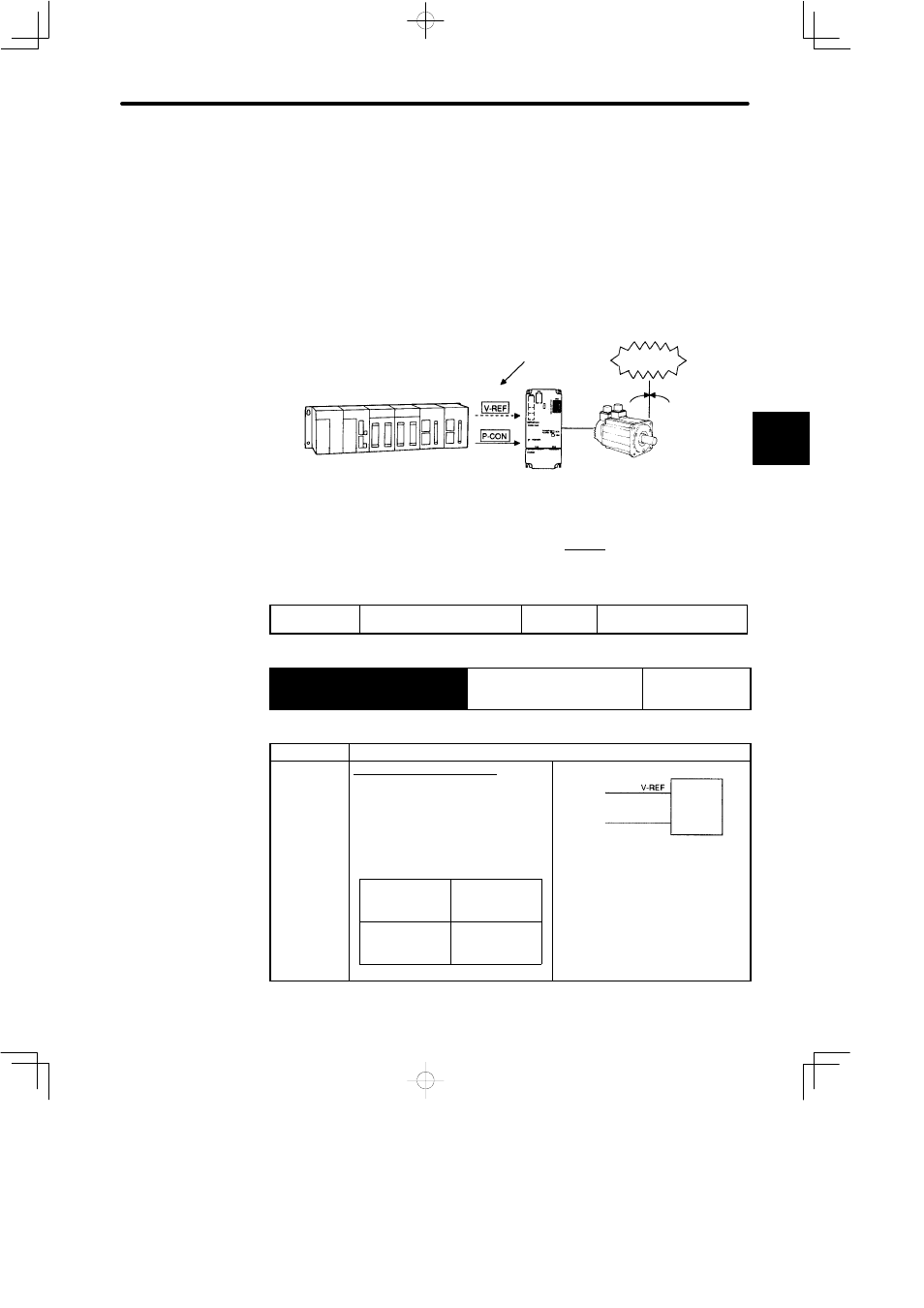3 using zero-clamp, Input /p-con 1cn-41 – Yaskawa SGDB User Manual
Page 119

3.4 Setting Stop Mode
107
3.4.3 Using Zero-Clamp
The zero-clamp function is used for a system in which the host controller does not form a
position loop by speed reference input.
In other words, this function is used to cause the motor to stop and enter a servo locked
status when the input voltage of speed reference V-REF is not 0 V. When the zero-clamp
function is turned ON, an internal position loop is temporarily formed, causing the motor
to be clamped within one pulse. Even if the motor is forcibly rotated by external force, it
returns to the zero-clamp position.
Host controller
Speed reference
Speed reference less than
Cn-29 setting is ignored
Stops
instantaneously
J
Setting Memory Switch
Set the following memory switch so that input signal P-CON can be used to enable or
disable the zero-clamp function.
Cn-2B
Control Mode Selection
Factory
Setting:0
For Speed Control Only
→ Input /P-CON 1CN-41
Proportional Control, etc.
For Speed/Torque
Control and
Position Control
Cn-2B
Control Mode
10
Zero-clamp Speed Control
This speed control allows the
zero-clamp function to be set when
the motor stops.
D
A speed reference is input from
V-REF (1CN-5).
D
/P-CON (1CN-41) is used to turn
the zero-clamp function ON or OFF.
SGDB SERVOPACK
Speed reference
Zero-clamp
1CN-5
1CN-41
/P-CON
10
/P-CON
(1CN-41) is
open (OFF)
Turns
zero-clamp
function OFF
Zero-clamp is performed when the
following two conditions are met:
/P-CON signal is closed.
/P-CON
(1CN-41) is
closed (0V)
Turns
zero-clamp
function ON
/P CON signal is closed.
Motor speed is below the value set
in Cn-29 (ZCLVL).
3
